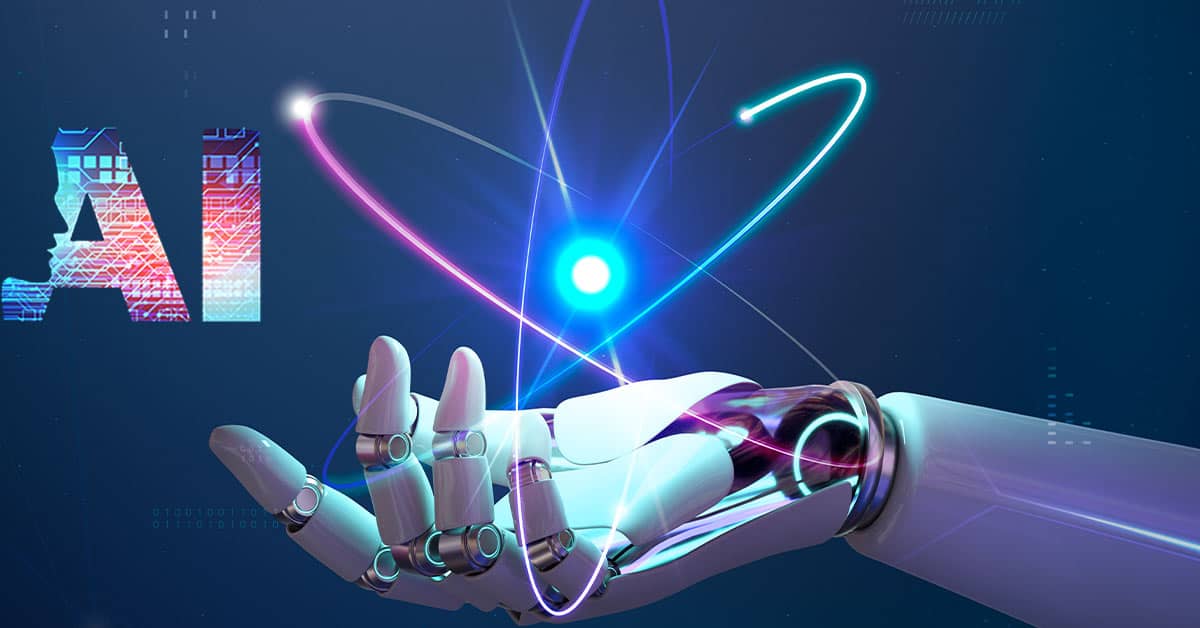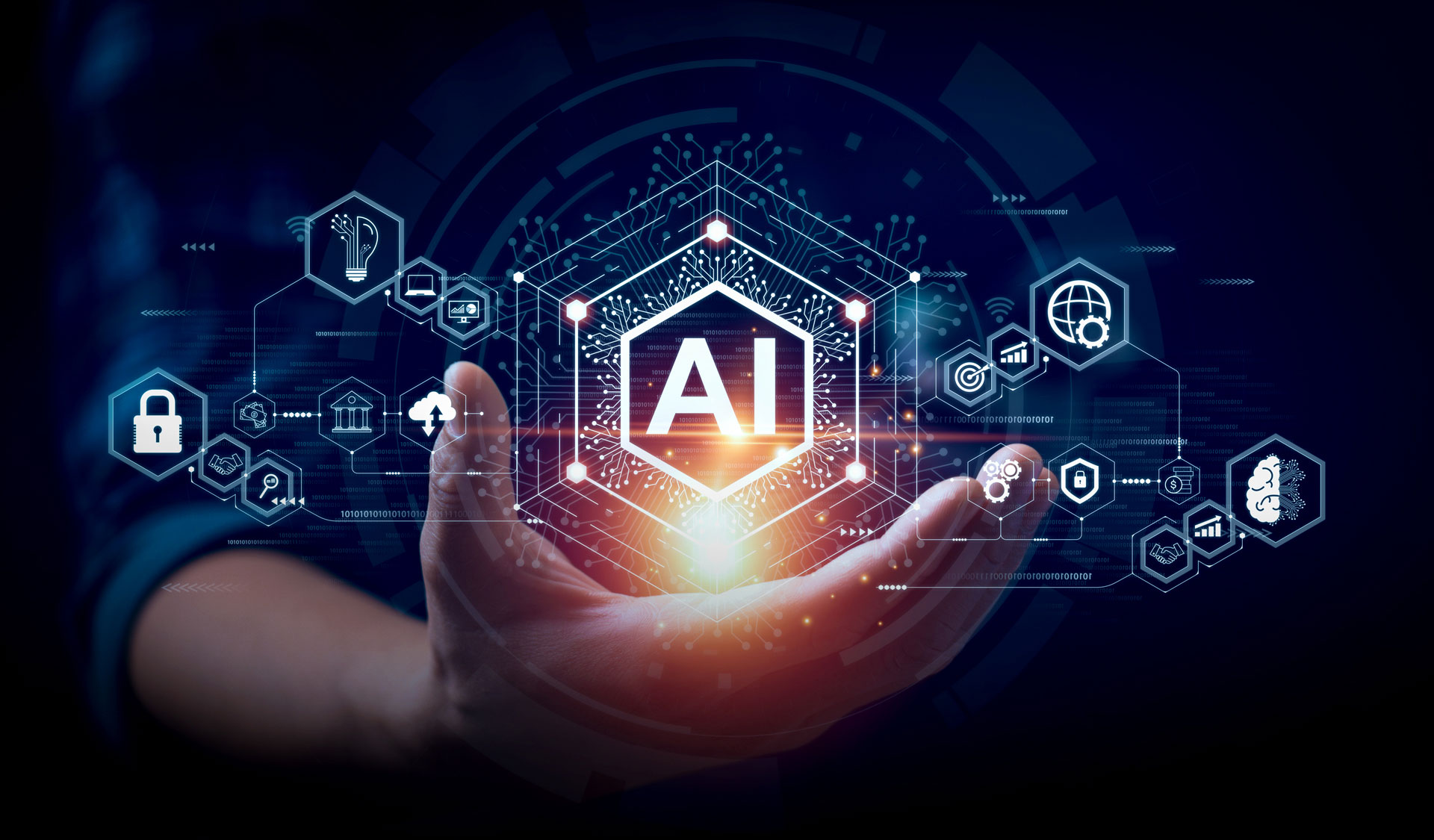
Artificial Intelligence (AI)
The Artificial Intelligence tutorial provides an introduction to AI which will help you to understand the concepts behind Artificial Intelligence. In this tutorial, we have also discussed various popular topics such as History of AI, applications of AI, deep learning, machine learning, natural language processing, Reinforcement learning, Q-learning, Intelligent agents, Various search algorithms, etc.
Our AI lesson starts at an elementary level, making it simple for you to grasp every step of the process—from the most fundamental to the most advanced.

What is Artificial Intelligence (AI)?
Artificial Intelligence in Vizag
In today’s world, technology is growing very fast, and we are getting in touch with different new technologies day by day.
Here, artificial intelligence is one of the burgeoning fields of computer science that is poised to bring about a new global revolution through the creation of intelligent machines.These days, artificial intelligence permeates everything. It is actively working on a wide range of subfields, from general to specialized, including painting, performing music, chess, theorem proofing, self-driving automobiles, and more.
One of the exciting and all-encompassing areas of computer science with a bright future is artificial intelligence (AI). AI has the potential to make a machine work like a human.
Artificial Intelligence is composed of two words Artificial and Intelligence, where Artificial defines “man-made,” and intelligence defines “thinking power”, hence AI means “a man-made thinking power.”
When a machine is capable of human-based functions like learning, thinking, and problem-solving, it is said to possess artificial intelligence.
The amazing thing about artificial intelligence is that, unlike preprogrammed machines, it is possible to build a machine with preprogrammed algorithms that can function on its own.
The remarkable thing about artificial intelligence is that, in contrast to machines that have already been programmed, it is feasible to construct a computer with preprogrammed algorithms that can operate independently.
Why Artificial Intelligence?
Before Learning about Artificial Intelligence, we should know that what is the importance of AI and why should we learn it. Following are some main reasons to learn about AI:
AI can be used to develop software and hardware that can accurately and quickly address a variety of real-world problems, including those involving marketing, traffic, health, and other concerns.
You may design your own virtual assistant using AI, just like Cortana, Google Assistant, Siri, and so on.
AI can be used to create robots that can operate in environments where human existence may be at jeopardy.
Other new technology, gadgets, and opportunities are made possible by AI.

Goals of Artificial Intelligence
Following are the main goals of Artificial Intelligence:
- Replicate human intelligence
- Solve Knowledge-intensive tasks
- An intelligent connection of perception and action
- Building a machine which can perform tasks that requires human intelligence such as:
- Proving a theorem
- Playing chess
- Plan some surgical operation
- Driving a car in traffic
- Creating some system which can exhibit intelligent behavior, learn new things by itself, demonstrate, explain, and can advise to its user.
Artificial Intelligence in Vizag
History of AI
The thought of imbuing non-living objects with intelligence has always piqued people’s interest. Greek myths from antiquity had gods building intelligent devices, and Egyptian engineers moved statues.
Thinkers who used symbols to explain how human thought functions, such as Aristotle and Ramon Llull, set the foundation for artificial intelligence.
What Comprises to Artificial Intelligence?
Even though artificial intelligence is so broad and dependent on many other variables, it is not solely a component of computer science. In order to construct AI, we must first understand how intelligence is made up.
Intelligence is an intangible component of the human brain that is made up of a variety of skills like reasoning, learning, problem-solving, perception, language understanding, etc.
To achieve the above factors for a machine or software Artificial Intelligence requires the following discipline:
- Mathematics
- Biology
- Psychology
- Sociology
- Computer Science
- Neurons Study
- Statistics
Types of Artificial Intelligence
Artificial Intelligence can be categorized in several ways, primarily based on two main criteria: capabilities and functionality.
Artificial Intelligence in Vizag
AI Type 1: Based on Capabilities
Narrow AI, often referred to as Weak AI, is comparable to a specialist in the field of artificial intelligence. Think of it as a virtual expert that is intelligently focused on completing a single task. Consider Apple’s Siri as an example. When it comes to voice commands and question responding, it is rather intelligent, but other than that, it is not very intelligent. Narrow AI functions within very specific bounds; if you ask it to do something outside of its comfort zone, it may not respond as you would expect. These days, artificial intelligence (AI) is used in everything from self-driving cars to smartphone picture identification.Another example of narrow AI is Watson from BM.
General Artificial Intelligence: Also known as Strong AI, General AI is considered the pinnacle of artificial intelligence. Imagine a system that was as efficient as a person at any intellectual task. The goal of general artificial intelligence (AI) is to build machines that can learn and think like people, but the catch is that no such system currently exists. Researchers from all over the world are putting a lot of effort and time into making it a reality, but it’s a difficult road.
- Super AI: Super AI takes AI to another level entirely. It’s the pinnacle of machine intelligence, where machines surpass human capabilities in every cognitive aspect. These machines can think, reason, solve puzzles, make judgments, plan, learn, and communicate independently. However, it’s important to note that Super AI is currently a hypothetical concept. Achieving such a level of artificial intelligence would be nothing short of revolutionary, and it’s a challenge that’s still on the horizon.
AI Type 2: Based on Functionality
Reactive machines: The simplest type of artificial intelligence is represented by reactive machines. These machines are aware just of the here and now; they are not guided by memories or experiences from the past. They just consider the immediate situation, reacting as best they can according to their training. Reactive machines include Google’s AlphaGo, a master at the ancient game of Go, and IBM’s Deep Blue, a chess-playing computer.
Limited Memory: For a little amount of time, machines with limited memory are able to recall certain information or past experiences. They make decisions and navigate situations using this stored information. Self-driving automobiles are a prime example of this kind of artificial intelligence. To enable safe navigation on the road, these cars retain up-to-date information such as speed limits, distances, and neighboring car speeds.
Concept of Mind: Concept of Mind Artificial Intelligence is still a research and development field. These artificial intelligence (AI) systems seek to mimic human emotions, thoughts, and social interactions. Although this kind of AI is still a ways off, scientists are making great progress toward building devices that are able to comprehend and communicate with people on a more profound, emotional level.
Self-Awareness: The next frontier in artificial intelligence is self-awareness. These machines will have consciousness, feelings, and self-awareness, making them incredibly clever. They will surpass the capacity of the human mind. It’s important to remember, though, that Self-Awareness AI is still only a theoretical idea and has not yet been implemented in practice. It would take a tremendous advancement in knowledge and technology to reach this level of AI.
Advantages of Artificial Intelligence
Following are some main advantages of Artificial Intelligence:
- High Accuracy with less errors: AI machines or systems are prone to less errors and high accuracy as it takes decisions as per pre-experience or information.
- High-Speed: AI systems can be of very high-speed and fast-decision making, because of that AI systems can beat a chess champion in the Chess game.
- High reliability: AI machines are highly reliable and can perform the same action multiple times with high accuracy.
- Useful for risky areas: AI machines can be helpful in situations such as defusing a bomb, exploring the ocean floor, where to employ a human can be risky.
- Digital Assistant: AI can be very useful to provide digital assistant to the users such as AI technology is currently used by various E-commerce websites to show the products as per customer requirement.
- Useful as a public utility: AI can be very useful for public utilities such as a self-driving car which can make our journey safer and hassle-free, facial recognition for security purpose, Natural language processing to communicate with the human in human-language, etc.
- Enhanced Security: AI can be very helpful in enhancing security, as It can detect and respond to cyber threats in real time, helping companies protect their data and systems.
- Aid in Research: AI is very helpful in the research field as it assists researchers by processing and analyzing large datasets, accelerating discoveries in fields such as astronomy, genomics, and materials science.


 Previous Post
Previous Post Next Post
Next Post